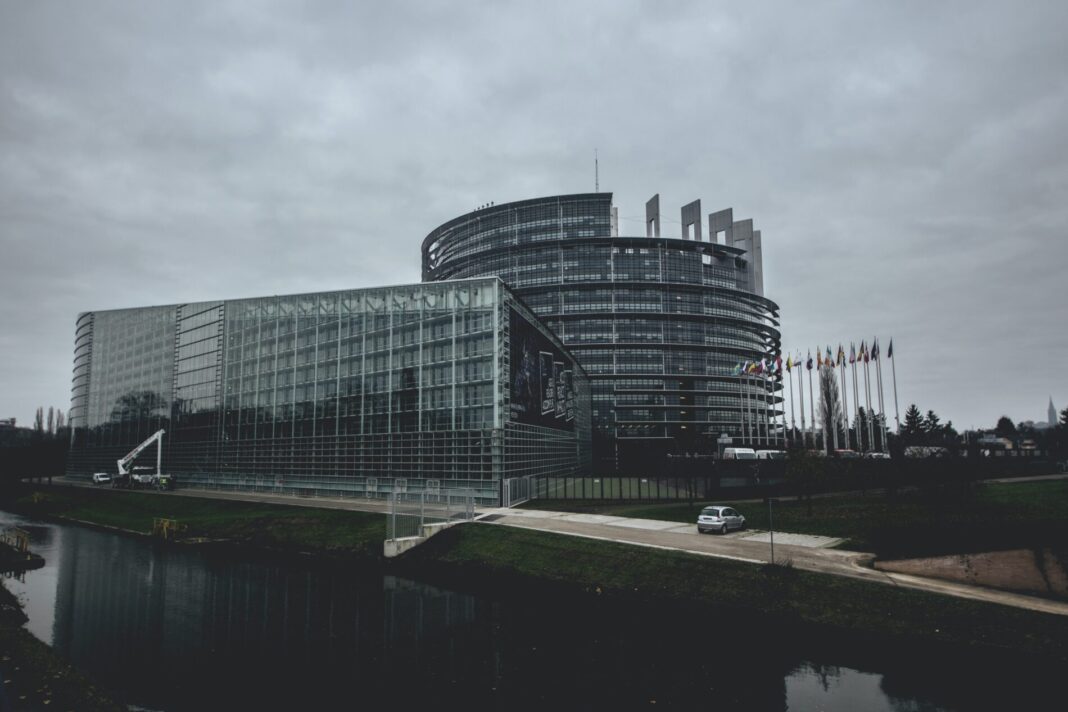The geopolitical consequences of climate change and the European response seen through the worried eyes of three students of Eastwest European Institute’s Model EU course
Discover all the 2022 Eastwest European Institute’s courses.
In December 2019 the EU introduced the Green Deal, perhaps the most ambitious set of policies in European history. It proposes a complete transformation in how the European economy functions, from its industries, energy supply, transportation networks, and agriculture.
The plans are extensive, the investments proposed are record-breaking (€1 trillion), and the spirit to save and lead the world is at the forefront of this deal, as President Ursula von der Leyen said, “We are determined to succeed for the sake of this planet and life on it… By showing the rest of the world how to be sustainable and competitive, we can convince other countries to move with us.”
However, such ambitious actions have ramifications. What is often overlooked is that climate change has geopolitical consequences, and so does any attempt at mitigating said consequences. In other words, while doing nothing and continuing to use oil, gas, and coal will harm the environment, getting rid of these sources of energy will ultimately marginalise many nations, including Russia, Saudi Arabia, and the rising economies of Africa, such as Nigeria.
While it is understandable that the primary focus of the EU is on the repercussions of climate change, these ambitious structural changes will alter European trade and investment patterns, which in turn will impact foreign relations and change geopolitical circumstances. In 2019 for example, the EU imported €320 billion worth of energy products, in fact, Europe accounts for roughly 20% of global crude oil imports. The Green Deal proposed would essentially end these imports by 2050.
The nation most reliant on energy exports to the EU happens to be one of the major threats to the EU, Russia. In 2019 60% of all EU imports from Russia were energy products, and in 2020 alone Petroleum from Russia was worth €67.3 billion.
On the one hand, being energy independent by 2050 is a sound strategy, one of the major threats to Eastern and Central Europe has been a reliance on Russian energy, something that the Russians will gladly weaponize and have arguably done so this winter by exploiting the current energy crisis in the EU. On the other hand, a weakened Russia could become dangerous and if it has nothing to trade, resulting in economic stagnation or decline, the EU may have to deal with an increasingly aggressive neighbour. This development is not to be taken lightly either, the drive to revolutionise energy and the economy means the EU will be focused and wholly invested in this Green Deal if it aims to truly achieve net neutrality by 2050. To then switch or diverge from this plan by investing in its military to counter Russia may result in an ineffective Green Deal outcome and inadequate military investments.
Although the EU has suggested creating so-called “Green Alliances” and has ensured that foreign policy is vital in making this whole endeavour work perfectly, it is difficult to understand how the likes of Russia and other energy-rich nations will benefit from this, and most importantly, how they will survive economically.
There is no such thing as a solution in economic terms, there are only trade-offs. A focus on renewables will weaken energy efficiency in the short term, the result of which is rising prices, while the long-term advantages may only be realised in decades. A major issue will be the expensive and risky switch from traditional and tested means of energy such as coal, oil, and gas, to cleaner and less efficient forms of energy such as wind and solar. These new technologies may take years to surpass the energy output of traditional sources. While this is happening nations like Russia will surely increase prices as they export less and less of their energy, this means a further rise in prices for energy within the EU.
While there is a certain advantage to being the first mover in business terms, this may not be the case with the Green Deal. While Europe is busy transitioning its entire economy, other states will continue using cheaper alternatives and simply wait for the EU to implement all of these costly changes, including research and risky investments.
The EU faces a difficult scenario, by solving one major crisis, it may trigger another crisis in the future, one that may be just as problematic as climate change in determining the fate and role of the EU this century.
The geopolitical consequences of climate change and the European response seen through the worried eyes of three students of Eastwest European Institute’s Model EU course




